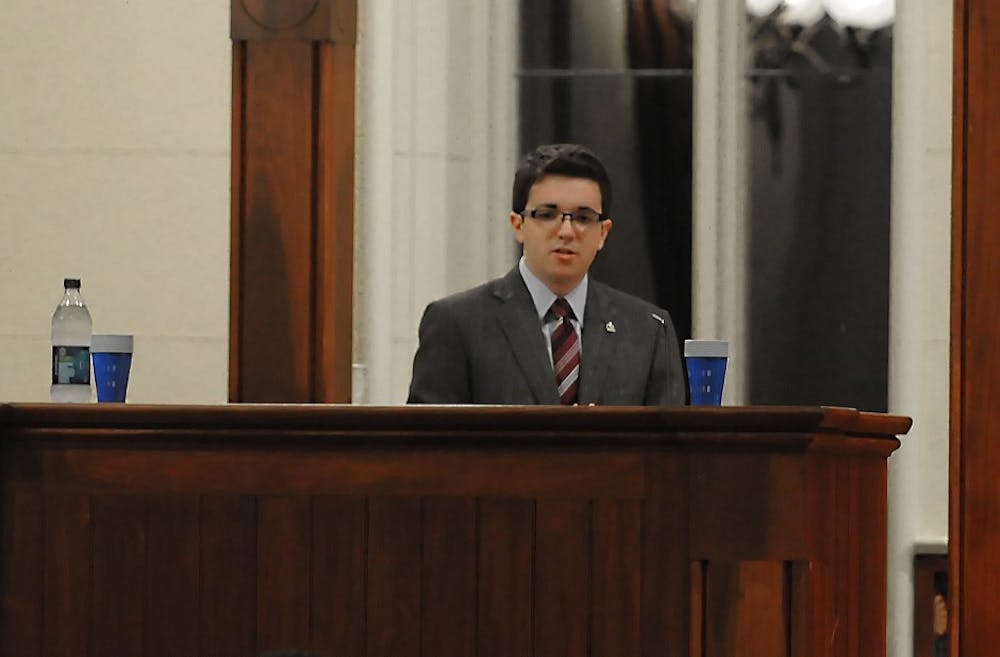
Students that have grown weary of an election season dominated by witchcraft ads, Nazi costumes and allegations of a Communist takeover of America had an opportunity Tuesday afternoon to witness something different — a substantive political debate on economic policy.
At an event in College Hall sponsored by the Philomathean Society, representatives from the Penn Democrats and College Republicans debated whether tax cuts or stimulus spending was the “best strategy for the U.S. government to end the economic downturn.”
“I don’t think either side is happy with the level of political discourse,” Philo moderator and College senior Alec Webley said before the debate. Webley, a Daily Pennsylvanian columnist, also added that the format of the debate, one he compared to the Lincoln-Douglas debates, was specifically designed to elicit longer responses and replace platitudes with substance.
Other politically minded groups on campus were not invited to participate. Dan Chinburg, founder of the Penn Tea Party Patriots and Graduate School of Education student, explained that he would welcome any opportunity to engage in a future debate with the Penn Democrats.
The Penn Democratic Socialists are in the midst of organizing a debate with the Tea Party Patriots, according to Penn Democratic Socialists President and College junior Cory Barnes.
Explaining why other campus political groups were not invited to participate, Webley explained that he saw no reason to include them. “Irrespective of what they would like others to believe, there are no credible third parties in this country,” he wrote in an e-mail, noting that he defined “credible” as holding a seat in a state or federal legislature.
While the hour-long debate delved into a number of topics — including health care and education policy — both the Penn Dems and College Republicans spent a significant amount of time discussing the American Recovery and Reinvestment Act of 2009, known more commonly as the stimulus package.
Taking the perspective of an entrepreneur, College Republicans Treasurer and Wharton junior Charles Gray explained that government spending has a number of “unintended consequences.” Gray, a former DP columnist, argued that the rising deficit or additional taxes necessary to pay for government programs has created uncertainty and is related to why some companies are holding back from investing.
“The debt is the only thing that matters,” added Wharton sophomore and College Republicans member Jan Egeman.
While a few participants from the Penn Dems noted that the stimulus package contained approximately $300 billion in tax cuts and credits, the Democrats’ focus remained largely on the value of government involvement, particularly during difficult economic times.
“It’s the duty of the government to assist its citizens,” Penn Dems member and College freshman Michael Luo said, noting the government is one of the only entities that can currently provide small businesses with loans when credit is tight.
“I thought it was a thoughtful, informative discussion,” Webley remarked after the event.
The Daily Pennsylvanian is an independent, student-run newspaper. Please consider making a donation to support the coverage that shapes the University. Your generosity ensures a future of strong journalism at Penn.
DonatePlease note All comments are eligible for publication in The Daily Pennsylvanian.




